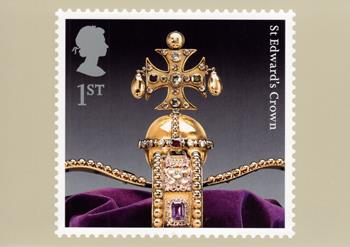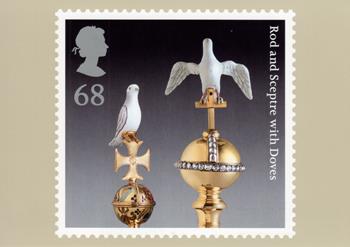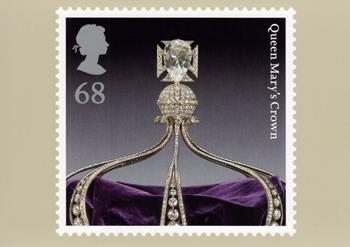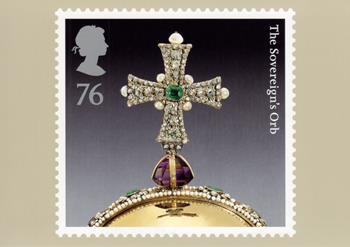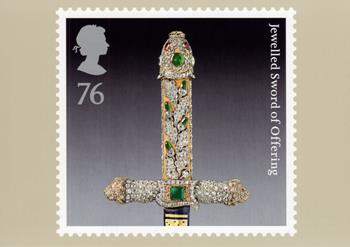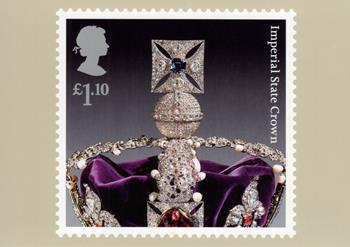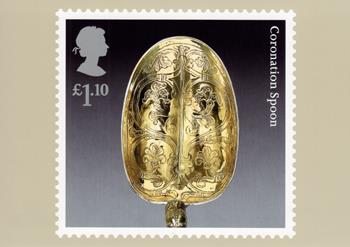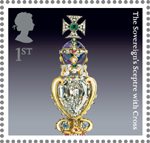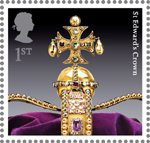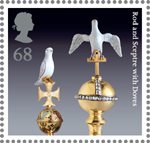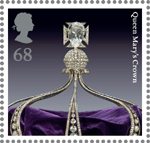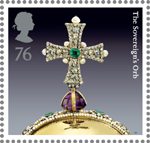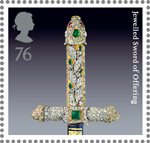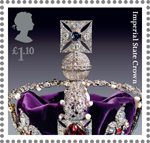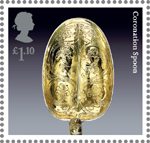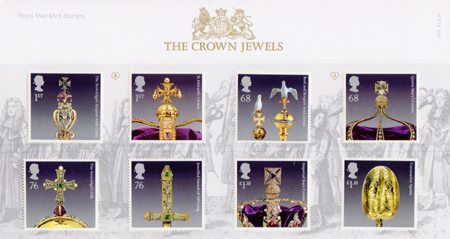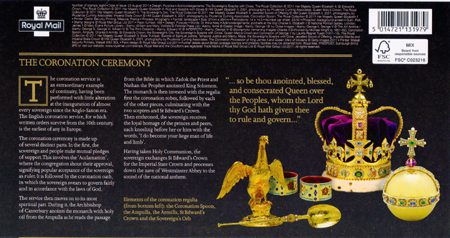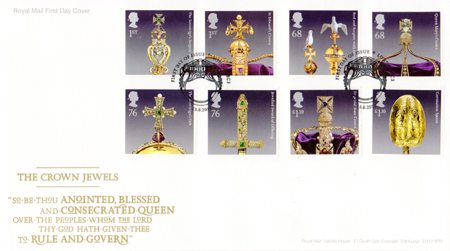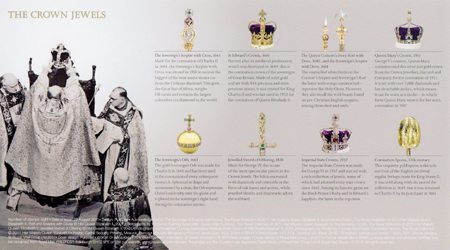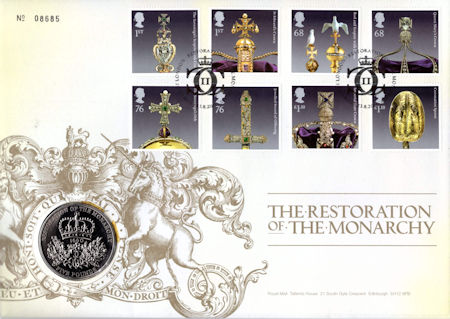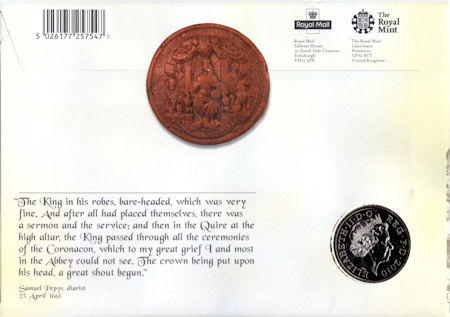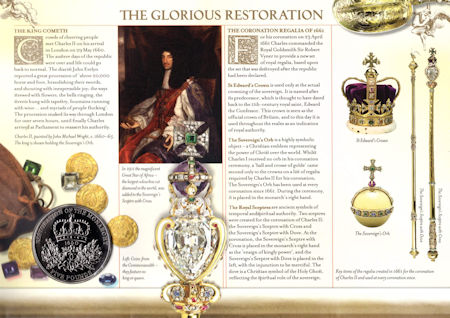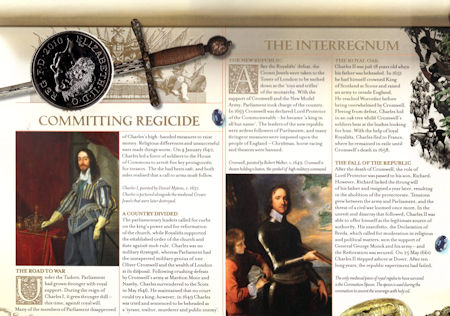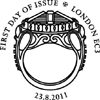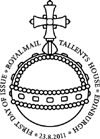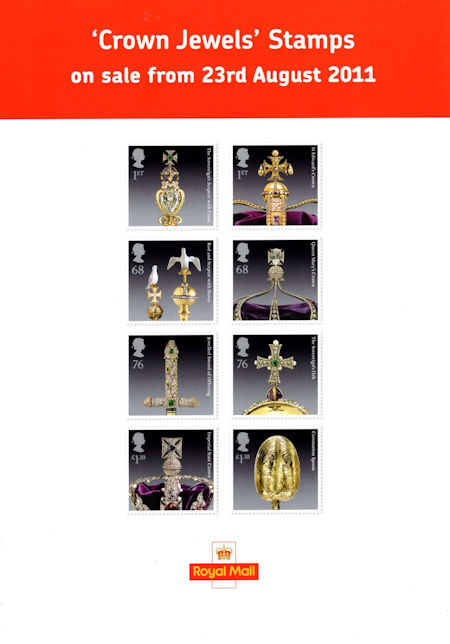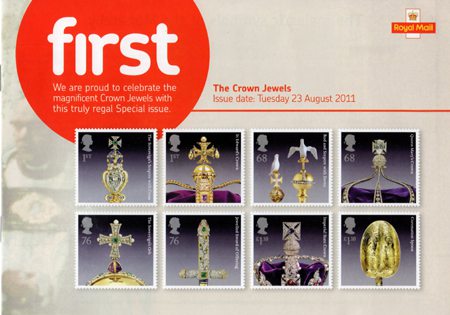The Crown Jewels
Issued on 23 August 2011, the Crown Jewels stamps feature some of the most important and iconic pieces from this fabulous collection; with images specifically chosen to reflect their beauty and intricate workmanship.This year marks the 350th anniversary of the making of many of the items featured on the stamps, which were created for the coronation of King Charles in 1661, following the Restoration of the monarchy in 1660.
2011 (August 23 2011)
Commemorative
Designed by Purpose
Size 37mm (h) x 35mm (v)
Printed by Cartor Security Print
Print Process Lithography
Perforations 14 x 14.5
Gum PVA
The Crown Jewels , Vol.48 No.11 (Issue Details)
Stamps
The Sovereign’s Sceptre with Cross
1stImage preview by Royal Mail
Originally fashioned in 1661 and so called because it is surmounted by a cross. In 1905, it was redesigned to incorporate the Great Star of Africa, the second largest cut diamond in the world. During the coronation, the monarch bears the Sceptre with Cross in the right hand.
The Sovereign’s Orb
76pImage preview by Royal Mail
The Orb was created for the coronation of King Charles II in 1661. It is a hollow gold sphere weighing 42 ounces. The Orb is a religious symbol; it represents the Monarch's role as Defender of the Faith and as Supreme Governor of the Church of England.
Jewelled Sword of Offering
76pImage preview by Royal Mail
The Jewelled Sword of Offering was made for the Coronation of King George IV. It is the only sword actually presented to the Sovereign during the Coronation (by the Archbishop of Canterbury, to signify that the royal power is at the service of the church).
Imperial State Crown
£1.10Image preview by Royal Mail
The Imperial State Crown was made in 1937 for King George VI. Among the stones are several famous ones, including the Black Prince’s Ruby and the Cullinan II diamond, also known as the Lesser Star of Africa. The crown is worn after the conclusion of the coronation ceremony when the monarch leaves Westminster Abbey and at the annual State Opening of Parliament.
Publicity - First
Download PDF
PHQ Cards

